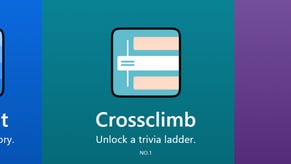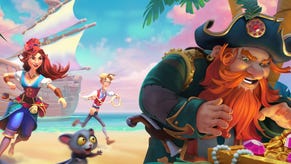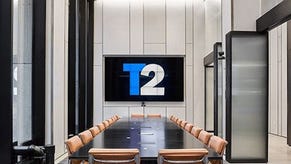Notch encourages competition for Valve's dominant Steam
Minecraft creator speaks out on Steam's success and the future relevance of Kickstarter
Mojang founder Markus "Notch" Persson has admitted that the primacy of Valve's digital distribution platform Steam needs to be challenged by new competitors like EA's Origin.
Speaking to GameSpy, Persson claimed that Steam's unchecked dominance is potentially "dangerous."
"I love Valve, but out of principle, I find the idea of one platform a bit scary," he said. "So I like that there are others competing - for example, Desura and Impulse, who recently got bought by GameStop. It's a good thing that there are more."
"Origin does a couple things badly compared to Steam -- which is impressive since they had eight years to study Steam. They should definitely have a chance to do their thing, but they might want to move away from titles that make people use it and show people why they should use it. But I think, in principle, it's a good thing."
EA's rival service launched last year, and was greeted by a chorus of negative voices. Last month, EA COO Peter Moore attributed the "initial level of vitriol" to gamers' longstanding aversion to new and different ideas, particularly those attached to major publishers.
I love Valve, but out of principle, I find the idea of one platform a bit scary. I like that there are others competing
Markus "Notch" Persson, Mojang
"If you go back and dust off the transcripts of when Steam first came out, it had the same reaction. People didn't like it. You were obligated," he said. "[Valve] provided, over the years - to Gabe and the team's credit - value to the gamer. Those first 12 months were very rocky."
Persson also revealed that nothing further has happened regarding his offer to help fund a sequel to Double Fine's Psychonauts, principally because the actual budget far exceeded his expectations.
"If it was less money - because originally, I thought it was, like, $2 million - then I would be more inclined to take a larger risk with that. But it seems to be five to ten times that amount of money. And that's super-much money."
"It's not a charity, and I'd rather give money to, like, indie developers than a big established studio that probably would be able to do it eventually."
However, on the subject of Double Fine's widely discussed $3.5 million Kickstarter campaign, Persson's responses were tempered with pessimism. He claimed that the future importance of Kickstarter and other sources crowd-sourced funding will rely heavily on pioneers like Double Fine delivering on their promises.
"I mean, if Double Fine crashes and burns and just vanishes, people might be less inclined to trust that model in the future."
"Granted, I don't think that's gonna happen, because they're obviously very excited about making this project. But eventually, something like that might happen. Then the Kickstarter model might not be as successful. Right now, it's working because it's been working so far."









